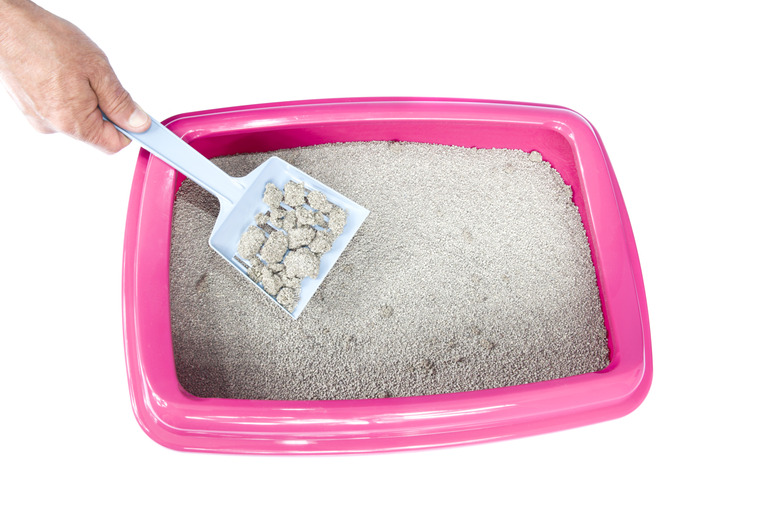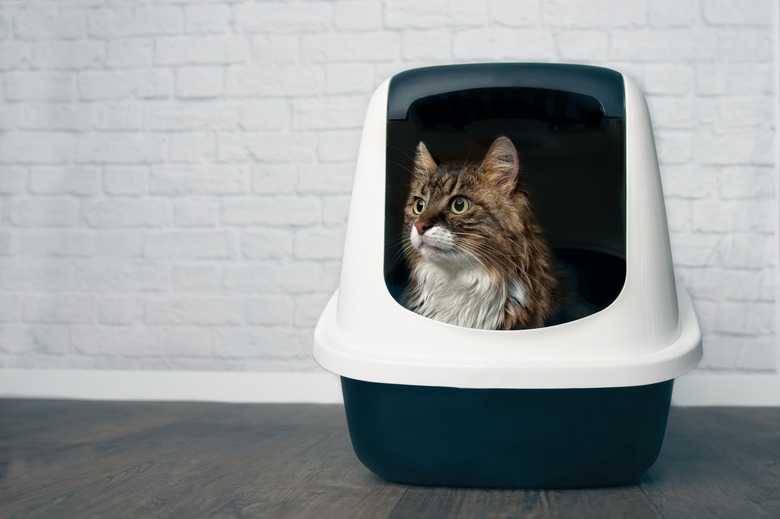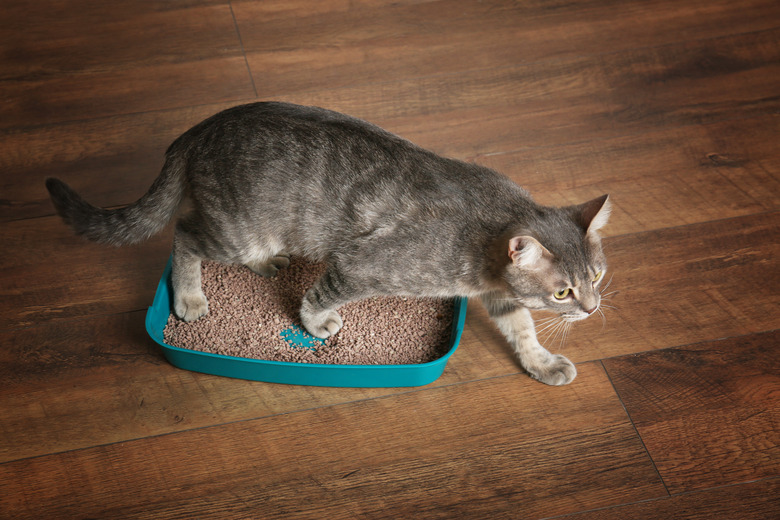How Often Should You Change Kitty Litter?
If you're a cat owner, you've probably asked the age-old question at some point: how often am I supposed to change my cat's litter?
Frequency
Frequency
To encourage litter box use, scoop your cat's litter box at least once a day and replace the litter on a regular schedule. Depending on the kind of litter you use and the number of cats you have, you'll want to change it as frequently as twice weekly or as rarely as once every three weeks.
The Humane Society of the United States recommends replacing clay litter twice a week. However, your specific situation might warrant more or less frequent litter box changing.
If you use clumping litter and have only one cat: change the litter once every two to three weeks.
If you use non-clumping clay litter and have only one cat: change the litter twice a week.
If you use clumping litter and have multiple cats: change the litter once a week.
If you use non-clumping clay litter and have multiple cats: change the litter three times a week or even every day (if possible).
If you use pellet or other "natural" litter and have any amount of cats: Wood pellet and natural litters' cleaning requirements vary greatly. It's best to consult your vet to ask how often you should be changing your specific brand of "natural" or wood pellet litter.
Additionally, all of the above points are only guidelines. If, at any time, you notice a strong smell coming from the litter box or notice your cat refusing to use it, it's time for a litter change (and probably a full litter box cleaning).
Felines are naturally tidy animals; many turn their noses up at litter that's anything less than immaculate.
Cat feces and infection
Cat feces and infection
Regular litter box scooping is essential for good health. Cat feces can become infected by a protozoan parasite called Toxoplasma gondii. This parasite is spread through infected meat intake, infectious oocyst intake or transmission between mother and fetus. Infectious oocysts initially show up in stool matter three days after a cat is infected. A cat may excrete oocysts for as long as 20 days. If a person or pet unintentionally consumes infected stool, he can get infected with toxoplasmosis. Toxoplasmosis can bring on flulike effects in human beings. The disease can be particularly hazardous to pregnant women. If a pregnant woman passes the infection to her unborn baby, it can potentially lead to mental disability, blindness or hearing loss.
Roughly 30 percent of felines in the United States have had contact with Toxoplasma gondii. Since the infection is so common, it's vital for owners to be diligent about never allowing cat feces to linger in a litter box for a long time.
The importance of frequent litter box cleaning
The importance of frequent litter box cleaning
Frequent litter box cleaning ensures that your cat doesn't get fed up by the mess and stop using it. If your pet's litter box is filled and reeks, he might try to deal with the situation by finding another location to do his business—making your problem far worse.
Some felines are fussier about and less tolerant of dirty litter boxes than others. If you observe your pet scratching the exterior of his box, he's signaling that he's not happy with how dirty it is, in which case you'll want to consider cleaning it more often.
Daily scooping
Daily scooping
If you want to ensure your cat reliably uses his litter box, scoop the stool matter and urine out on a daily basis. If you have more than one cat in your household, aim to scoop even more often and provide one litter box for each cat, plus one. Cats typically are most content when they don't share a communal litter box.
Litter replacement
Litter replacement
Routine emptying of the full litter tray is vital. If you fill your cat's litter box with clumping litter, replace it with completely fresh new litter once a month. If you fill the box with non-clumping litter, on the other hand, you should aim to change the litter two times per week. If you notice unpleasant cat waste smell in your home, despite scooping waste daily, it's time to change the litter.
Litter box scrubbing
Litter box scrubbing
When you replace your cat's litter, thoroughly scrub the box with a big disposable sponge. Clean it with a gentle dish soap and warm water. Avoid using cleaning formulas that are toxic to felines. Also avoid using formulas that contain citrus oils or ammonia. Both of those can deter cats. Don't forget to wash the scooper and box lid, too.
Regular sterilization of the box helps prevent odor and eliminates germs. If you want even more protection from odors, consider purchasing a cat litter deodorizer that's capable of neutralizing offensive smells. Some cat owners use baking soda to keep strong box odors at bay.
If you have any questions regarding safe cleaning products to use in your pet's litter box, consult your veterinarian for more information.
References
- The Humane Society of the United States: Preventing Litter Box Problems
- Petfinder: Cleaning the Litter Box – How Often Is Best?
- Pet Health Network: How Often Do I Really Need to Clean My Cat's Litter Box?
- Home Comforts; Cheryl Mendelson
- 2,001 Amazing Cleaning Secrets; Jeff Bredenberg
- Animal Planet: How to Safely Clean a Cat's Litter Box
- The Humane Society of the United States Complete Guide to Cat Care; Wendy Christensen
- The Merck Veterinary Manual: Overview of Toxoplasmosis
- American Society for the Prevention of Cruelty to Animals: Toxoplasmosis
- Healthy Pets: Toxoplasmosis – The Cat Disease Most Humans Don't Get From Cats


